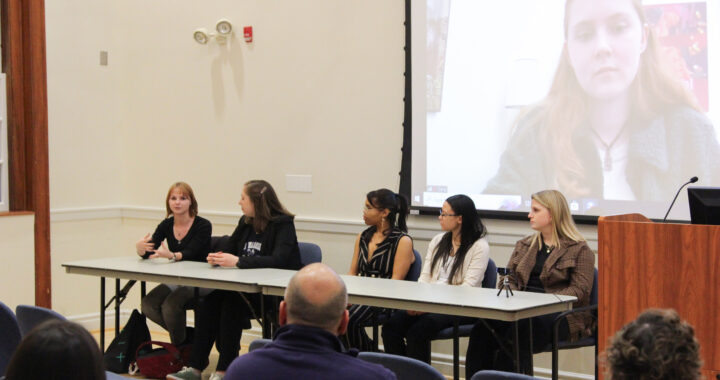UMW Makes It Rain Downtown
3 min readBy Eric Steigleder
In early 2008, the University of Mary Washington commissioned a study to gauge the economic impact of the University’s spending in the Fredericksburg area. The findings revealed the college’s monetary impact on the region to be well into the hundreds of millions.
The study was conducted by Stephen Fuller, an economics professor and Director of the Center for Regional Analysis at George Mason University.
Fuller was chosen, according to Executive Vice President Richard Hurley, due to his familiarity with the Fredericksburg area, previous experience conducting similar studies, and his renown as a gifted regional economist.
Fuller authored a comparable study for GMU in 2006, and two studies for George Washington University in 1993 and 2000. The UMW study took three months to complete, which was followed by a lengthy period of review process.
According to Fuller, the main source of information came from university audits of spending, student numbers, and areas of residence. More in depth economic information about the region came from the U.S. Bureau of Economic Analysis.
Student spending, while difficult to determine, was, according to Fuller “estimated from previous studies conducted by Virginia Tech, UVA, as well as studies that I conducted of student spending at GMU and GWU.”
The study ultimately concluded that in 2007, the University of Mary Washington spent close to $74.3 million in Fredericksburg, more than half of the University’s direct spending. Student spending in the region totaled close to $6.3 million dollars, not including housing-related expenditures.
According to the study, “For every dollar of University or university‐related spending in the Fredericksburg Region, an additional 55 cents was generated in the local economy due to the re‐spending of the initial dollar by local businesses and their employees.”
Due to this additional 55 cents per dollar, the complete impact of spending on the regional economy solely on the part of the college totaled close to $15.2 million. Operational and outlay spending by the college as well as spending associated with students, visitors and retirees totaled $133.9 million.
Executive Director of University Budget and Financial Analysis Paul Messplay has a positive view of the study’s findings and impact.
“Overall, the study finds that the University of Mary Washington has a significant positive economic, social, intellectual and cultural impact on the Fredericksburg community and the Commonwealth of Virginia,” he said in an e-mail interview.
UMW Economics Professor Margaret Ray analyzed a short overview of the study, and felt confident in its conclusions.
“The overview of the study indicates that it is a standard economic impact study using income and employment multipliers,” Ray said via e-mail. “It uses basic data available from the university and provides an accurate, conservative estimate of UMW’s economic impact.”
The figures that appear in the study have been widely accepted as conservative, an affirmation made by Hurley, Messplay, and Fuller.
According to Hurley, the study was commissioned for a variety of reasons, including a perceived desire to remind the entire community of Mary Washington’s substantial economic influence.
“It is important to remind ourselves and the community exactly what the economic impact of our presence is,” Hurley said.
Responding to concerns voiced by residents of the region was also a factor in commissioning the study.
Specifically, Hurley mentioned a letter he received from local residents during his tenure as acting President.
“Local residents complained about our visitors creating wear and tear on our streets and sidewalks,” Hurley said, “And that they should be charged some sort of additional tax.”
The study aims to remedy this perception. According to Messplay, an important function of Mary Washington is to support the local economy and foster its growth.
“As a state institution, we are expected to advance the economic viability of the region and the Commonwealth,” he said in an e-mail interview.
Hurley also mentioned that such a study also proves useful when the various education advocacy groups request up-to-date monetary information.
However, with the recent downturn in the national economy, it may prove difficult to maintain monetary support.
“In general, one would expect a period of restrained spending on the part of UMW and its students as everyone copes with the economic realities,” Messplay said. “Overall, however, UMW will continue to be a major influence on the local economy and will likely have a moderating effect on the general economic downturn.”











